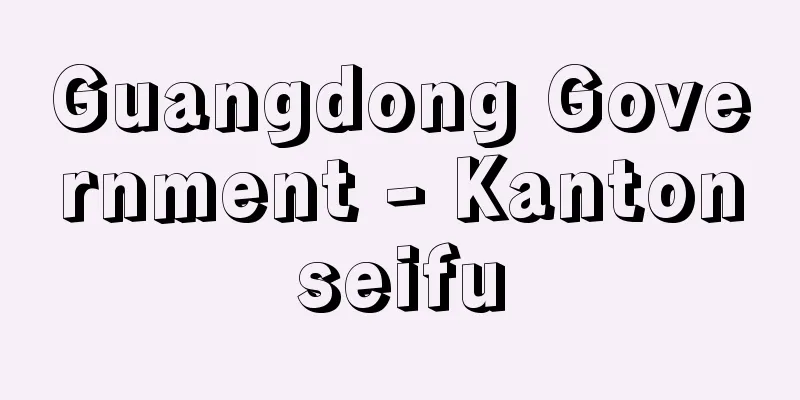Guangdong Government - Kantonseifu

|
This refers to the government that was established in Guangdong (Guangzhou) in opposition to Beijing after the Xinhai Revolution in China. The first Guangdong government was a military government established in September 1917 with Sun Yat-sen as its generalissimo, which was a coalition between the Sun Yat-sen faction, which advocated the restoration of a formal national parliament, and the Southwestern warlords. The second was a military government with Sun Yat-sen as its generalissimo, which was established in May 1921 in a coalition with the warlord Chen Tongming. Later, Sun Yat-sen advocated an active Northern Expedition, and was overthrown in a coup by Chen's subordinates. The third was established in 1923, also with Sun Yat-sen as its generalissimo, but it became powerful after the First Kuomintang-Communist Cooperation in January 1924, and was reorganized as the Nationalist Government of the Republic of China in July 1925, which lasted until the capital was moved to Wuhan in 1927. In addition, there was one organized by anti-Chiang Kai-shek activist Wang Jingwei and others in 1931, and another which saw the Nationalist government move its capital from Nanjing to Guangdong for a few months in 1949 after being driven out by the Liberation Army, but these two are not usually included in the Guangdong government. [Yuzo Kato] [Reference items] | | |Source: Shogakukan Encyclopedia Nipponica About Encyclopedia Nipponica Information | Legend |
|
中国、辛亥(しんがい)革命後、北京(ペキン)に対して広東(広州(こうしゅう/コワンチョウ))を中心につくられた政府をいう。最初の広東政府は1917年9月、孫文(そんぶん/スンウェン)を大元帥としてつくられた軍政府で、これは正式の国会を復活することを主張した孫文派と西南軍閥との連立である。第二次は軍閥陳炯明(ちんけいめい/チェントンミン)との連立で21年5月に成立した孫文を大元帥とする軍政府。のち孫文は北伐の積極的展開を主張し、陳の部下のクーデターで倒された。第三次は23年に同じく孫文を大元帥としてできたが、これは24年1月の第一次国共合作を経て強大になり、25年7月には中華民国国民政府に改組され、27年武漢への遷都まで続いた。さらに31年反蒋介石(しょうかいせき/チヤンチエシー)派の汪兆銘(おうちょうめい/ワンチャオミン)らの組織したものと、49年の数か月、国民政府が解放軍に追われて南京(ナンキン)から広東に都したものがあるが、普通この二つは広東政府には含めない。 [加藤祐三] [参照項目] | | |出典 小学館 日本大百科全書(ニッポニカ)日本大百科全書(ニッポニカ)について 情報 | 凡例 |
Recommend
Loss of right of invocation
...In response to the above thinking, the prevail...
Crown Prince/Spring Prince - Togu
The residence of the Crown Prince, and by extensio...
Orient species - Orient species
... Well-drained soil and abundant sunshine are d...
Science magazine - kagakuzasshi
In the narrow sense, it is the main medium for the...
Maurice Arthus
1862‐1945 French physiologist. He studied in Paris...
Nobuhide Oe
...The motifs include pine, bamboo, and plum, flo...
Ura peasant - Ura byakusho
In the Edo period, they were residents of Urakata ...
Decker, P.
…The Germanic Baroque is especially prominent in ...
quota
…The IMF is composed of the Board of Governors, w...
Morphogenesis - morphogenesis
In the development of an organism, this refers to...
Working People's Party
…After liberation in August 1945, he demanded the...
warm index
…In addition, there is a belief that frost resist...
Kaneyama cedar
...The main settlement is Kanayama, which is on N...
Gibbs' H theorem - Gibbs's Ecchi Theorem
…However, if the value of ρ before taking the lim...
Weak child - Kyojakuji
〘 noun 〙 A general term for children or students w...









